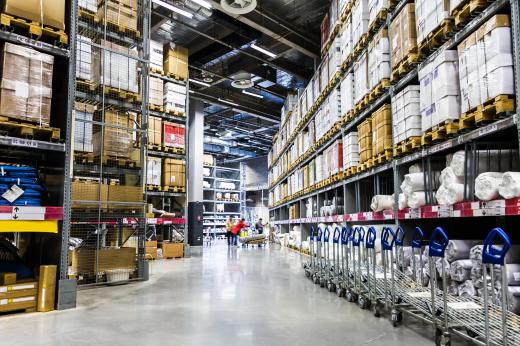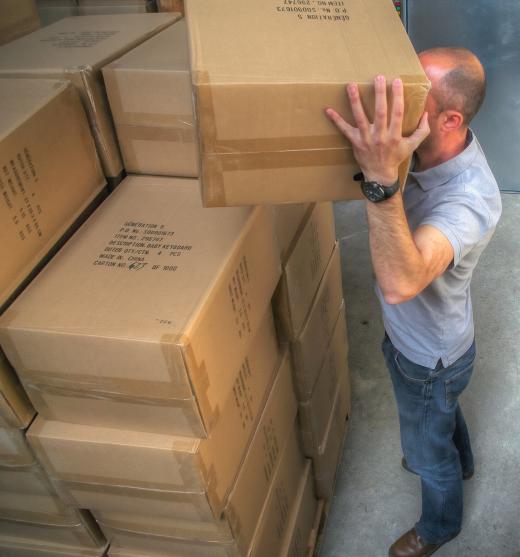A warehouse pallet is a device, often made of out of wood, on which goods can be stacked, stored and transported. It is commonly used when large amounts of items or oversized items need to be moved. Pallets are square or rectangular in shape. They are designed in such a way that goods can be securely held while being moved. This allows fork lift, pallet jacks or other equipment to move, hoist, or lower several items at once.
Warehouses often have a lot of goods that need to be stacked and moved. Rather than moving each item individually, the products can be stacked on a warehouse pallet. These items can then be moved by truck, ship or other means and be delivered to their destination. Using a warehouse pallet also allows for better space storage. This is because goods on pallets can sometimes be stacked on top of one another.

It is possible for some pallets to carry loads of over 2000 pounds (approximately 908 kg). A company can use the dimensions and weight of their products to determine how many can go on each warehouse pallet. Therefore, instead of having to count each individual box when getting or shipping a delivery, the company and their clients can just count the number of pallets. However, it is possible for a company to be cheated in this way. A worker who knows what he is doing can stack the pallet short in such a way that it looks like a full pallet.

A warehouse pallet can be made out of a variety of materials. Wooden pallets, for instance, are a common choice. However, wooden pallets must be in good condition when they are used. Otherwise, the load—sometimes thousands of pounds—can break the pallet and fall on warehouse workers, causing injury. Pallets can also be made out of other materials such as metal and plastic.
For safety purposes, both of the workers and the items, products stacked on pallets need to be secured, especially if the pallet is being shipped. Many times, these items are kept in place using stretch wrap, a stretchy plastic that can be wrapped around the items, keeping them together. In order to keep the items from sliding off the pallet, however, the wrap should be placed around both the items and the top of the pallet. Other options of securing items on pallets include strapping and shrink wrap. These options can even be used together for an even more secure pallet.
